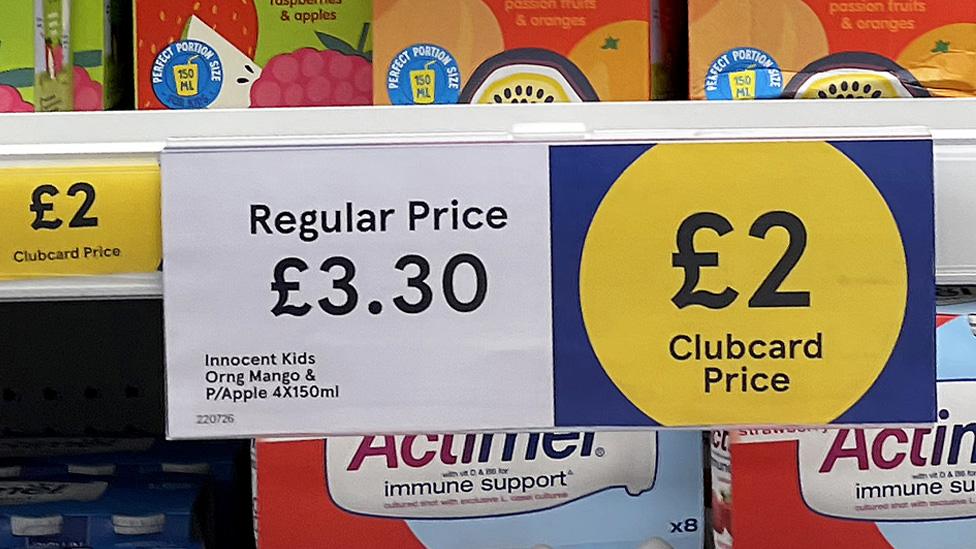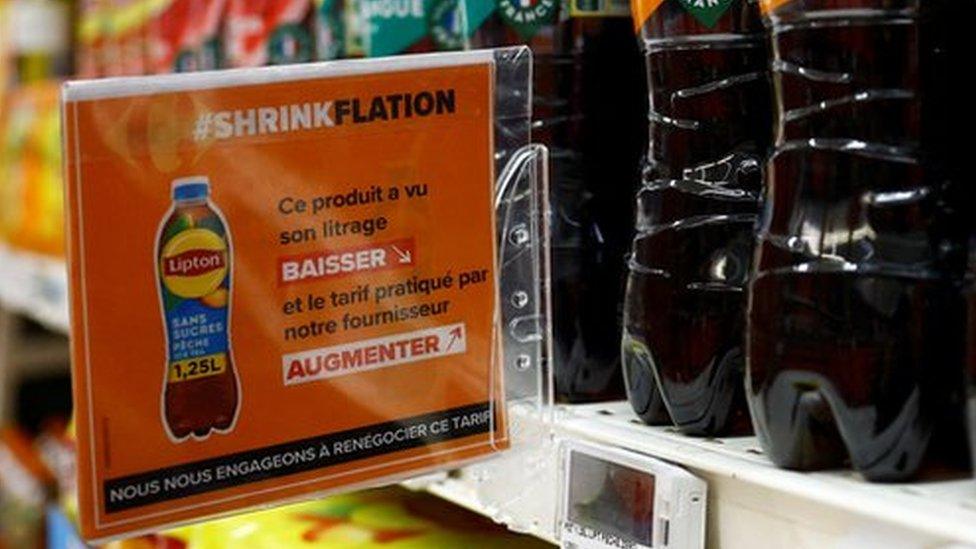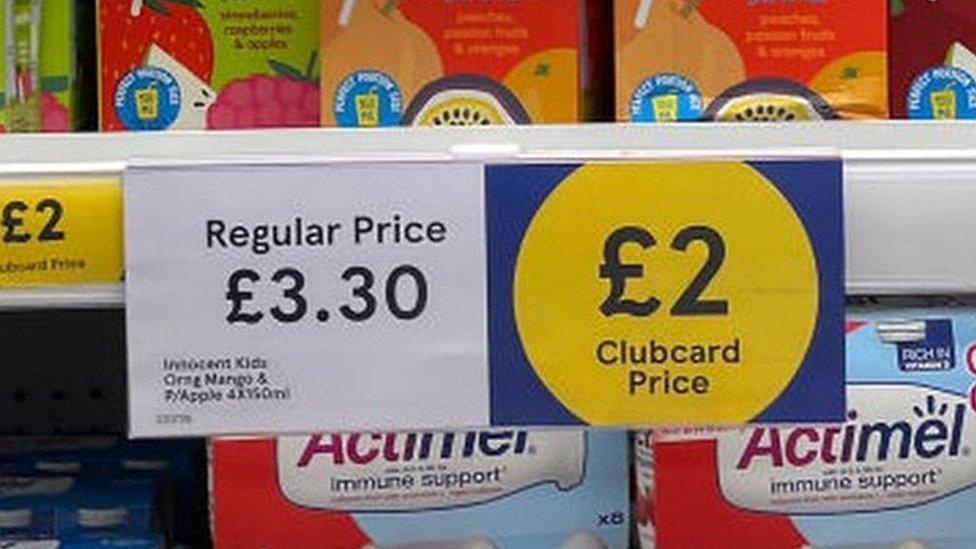Sainsbury's and Tesco loyalty card prices not as good as they seem, says Which?
- Published
- comments

Supermarkets' loyalty schemes are not the bargains they appear, according to a leading consumer rights group.
Which? says Sainsbury's and Tesco are using "dodgy tactics" by increasing the prices of everyday items so the discounts for people with loyalty cards look bigger than they really are.
However, the claims have been rejected by both supermarkets.
Sainsbury's and Tesco said all prices have been going up due to inflation, which is much higher than usual.
Against this backdrop of rising prices, the UK's two biggest supermarkets now offer two different prices for many items- a higher one for shoppers without loyalty cards and a lower one for shoppers with a loyalty card.
On the face of it that can look like big savings for scheme members, with sometimes a £1 to £2 difference in price.
However Which? said supermarkets were inflating the "regular" price and the members' deal was often not significantly better than the general recent price for the product, in their store or at rivals'.
Which? said it had tracked pricing history in stores for six months to see whether the regular price displayed was really the standard price the items were sold at over a reasonable recent period.
Among the deals it highlighted were:
a jar of Nescafe Gold Blend Instant Coffee (200g) sold at Sainsbury's for £6 with a Nectar card or £8.10 without
Which? said the regular price went up from £6 to £8.10 two days before the Nectar offer was launched.
Sainsbury's said Which?'s methodology was "flawed" and the regular price was not £6.
"The base price of this item has been £8.10 since December 2022 and £6 was a promotional price throughout this year, including on Nectar Prices when it launched in April," a spokesperson said.
"Which? fails to recognise that base prices have been increasing throughout the year due to inflation," they added.
Which? also highlighted:
Heinz Salad Cream (605g) at Tesco with a Clubcard price of £3.50 and a regular price of £3.90
The salad cream had been sold at £2.99 for several weeks but the price was increased to £3.90 just 22 days before the Clubcard promotion began, Which? said. Which? found the condiment had been sold at £3.90 for just 14% of the previous six months.
Tesco said its 8,000 Clubcard deals offered genuine savings for customers.
"All our Clubcard Price promotions follow strict rules, including considering how they compare against prices in the market, to ensure they represent genuine value and savings for our Clubcard members," a spokesperson said.

Both supermarkets said they followed Trading Standards rules on promotions.
However, Which? said it had found that around a third (29%) of the member-only promotions were at their so-called regular price for less than half of the preceding six-month period.
Sue Davies, head of food policy at Which? said the investigation showed loyalty offers were not all they were cracked up to be.
"As member-only pricing continues to grow, the sector, its pricing practices and who is eligible for membership needs to be properly scrutinised so that all shoppers - including society's most vulnerable - can benefit and no one is misled into buying things they wouldn't have usually bought or which isn't quite the deal they believe it to be," she said.
The consumer group said not everyone was able to access the discounts, including children buying lunch, young parents and carers, and people in temporary accommodation. As a result they may be paying inflated prices, it said.
Shoppers commenting online were divided over whether loyalty schemes were a good or bad thing.
Some described them as a "scam", saying they were "sick of seeing a price shoot up, knowing that it's going to be a special offer a couple of weeks later".
Others called for more clarity, including the suggestion that supermarkets should have to display the price charged over the previous six months.
Many said supermarkets without such schemes were more attractive.
However, other shoppers said loyalty scheme pricing had helped them weather "hard times".
Which? said it had shared its findings with the Competition and Markets Authority (CMA), which earlier this year said it would explore whether competition was working effectively in the grocery sector.
A CMA spokesperson said: "Grocery prices are a huge concern to people all over the country and shoppers need help to spot the best value for their money. That's why the CMA has a programme of work in the groceries sector such as looking into unit pricing practices online and instore.
"We will consider the information provided by Which? about its recent investigation into loyalty prices."
Related topics
- Published14 September 2023

- Published16 April 2023

- Published29 August 2023

